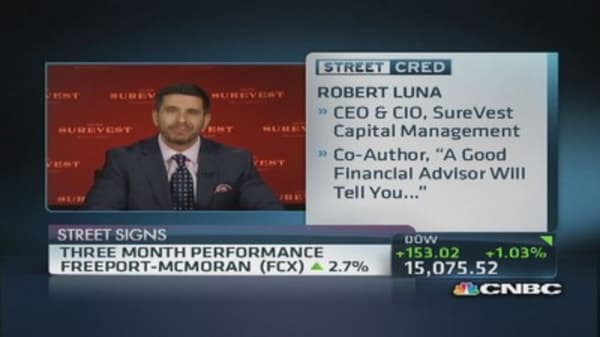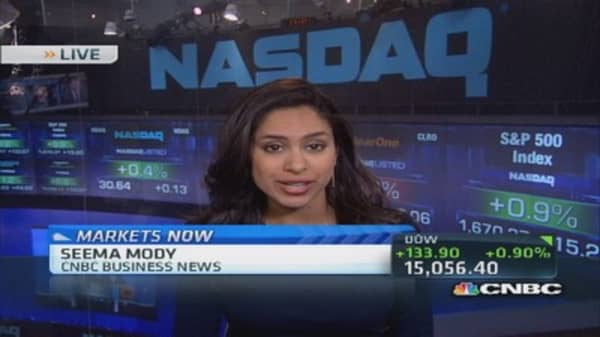Following a week where Treasury yields zipped to two-year highs and 10-year benchmark bonds broke the psychologically important 3 percent level, this week's Treasury auctions will also be in the spotlight.
Last week, U.S.non-farm payrolls increased by 169,000 in August, undershooting consensus estimates of 180,000, which will be a key consideration for the Federal Reserve next week, when it meets to debate when to start tapering off its asset purchasing program. The tapering debate continued over the weekend, when International Monetary Fund Managing Director Christine Lagarde told CNBC that the Fed could not afford to ignore emerging markets when it weighed up future policy.
(Read more: Why tapering doesn't mean QE is going away)
Earlier, San Francisco Federal Reserve President John Williams said he would go into next week's Fed policy-setting meeting with an open mind on whether to begin cutting the pace of the Fed's $85 billion monthly bond purchases.
On the economic front, consumer credit growth rose at a 4.4 percent annual rate in July, expanding by $10.4 bullion, down from a 5-percent rate in June, according to the Federal Reserve. Analysts expected a $12.5 billion gain.
Apple rallied after FBN Securities raised its price target to $600 from $575 ahead of the tech giant's event on Tuesday where it is expected to unveil the latest versions of the iPhone—iPhone 5S and iPhone 5C. FBN said it expects the new iPhone to start shipping on Sept. 20 and sees the iPhone 5C as an opportunity for the company to be successful in China.
Yum Brands said its sales in China fell by 10 percent in August. Still, shares of the parent company of Taco Bell and KFC edged higher after it said it expects sales growth to resume in China for the current quarter. Rival McDonald's is slated to report same-store sales on Tuesday.
Molex skyrocketed more than 30 percent to lead the S&P 500 gainers after the company said it will be acquired by privately-owned energy and chemicals conglomerate Koch Industries for about $7.2 billion.
Time Warner is planning to transfer its U.S. retirees from company-sponsored health plans to private insurance exchanges, according to a Reuters report.
(Read more: Companies sweatingObamacare tax)
Microsoft launched its Xbox Music streaming service for free on the Internet, in the hope of drawing in more customers.
Delta will join the S&P 500 index after the close of trading Tuesday, replacing BMC Software. BMC is being acquired by Bain Capital.





